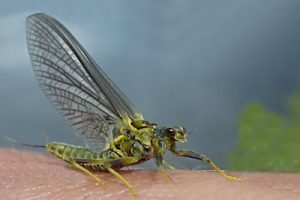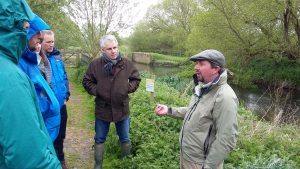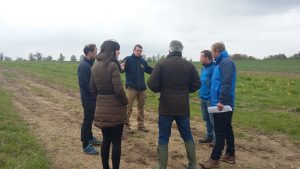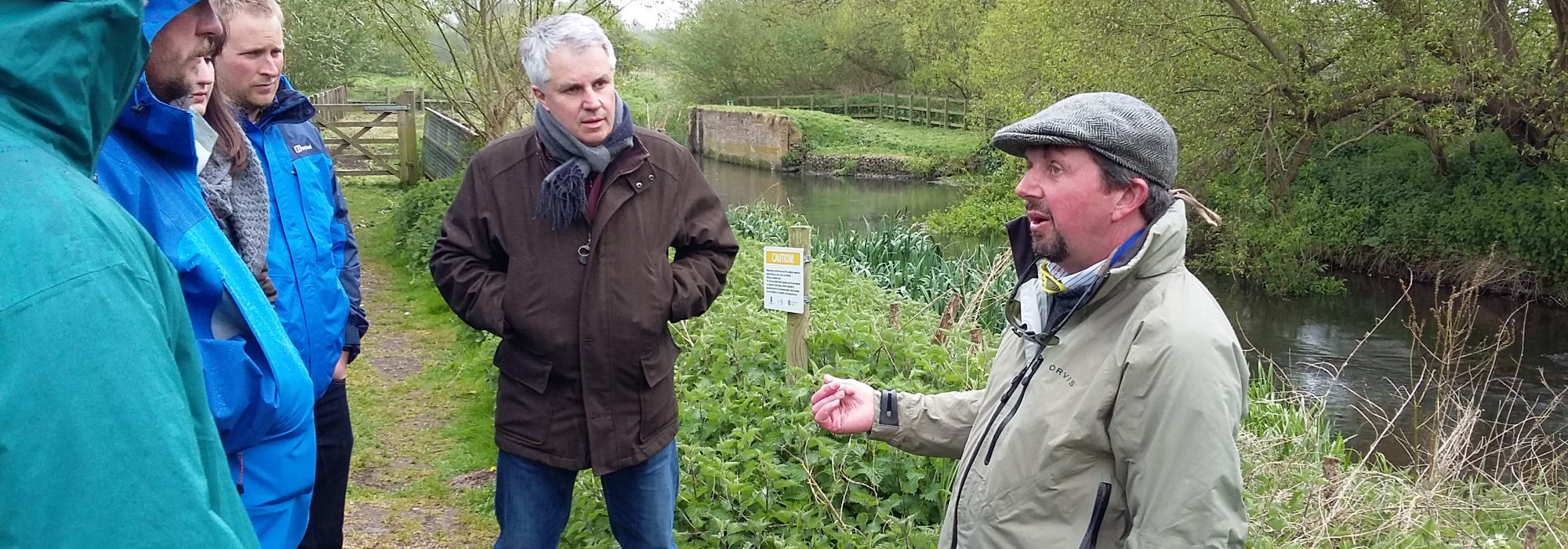Thames21 leads IntCatch trip to ‘inspirational’ restoration in Norfolk

Blue winged olive mayfly will soon be back on a stretch of Norfolk river, members of a European-wide water quality monitoring project discovered on a recent trip to the region.
Members of IntCatch, including Thames21, visited the work being carried out by Bury St Edmunds Trout Club on their recent visit to East Anglia.
IntCatch, a partnership of 20 organisations across seven European countries, will bring laboratories to the field by developing and testing floating ‘robot labs’ in the form of remote-controlled boats and fixed sensors.
The project by the trout club is one of two in Norfolk in which volunteers will be able to become trained IntCatch citizen scientists, using the boats when they come into operation to monitor water quality on specific projects later this year.

Nathalie Gilbert, Thames21’s IntCatch project manager, said: “Bury St Edmunds Trout Club has done some truly inspirational citizen science work restoring the river Lark near West Stowe to provide trout spawning habitat.
“It was silting up due to being over wide, so they have been putting woody debris in the channel to make it narrow and deeper to scour the silt off the gravel bed. They also monitor water quality and are reintroducing blue winged olive mayfly larvae, after they were wiped out by a pollution incident in 2011.
“They will be an IntCatch citizen science case study as we intend to train them up on using the IntCatch boats. We will collect feedback on how they get on operating the equipment and how IntCatch tools helped inform their projects, decisions and evidence collection campaigns.”

The IntCatch representatives also visited a local farmer who is part of a pilot study for a water sensitive farming scheme that involves Norfolk Rivers Trust. The scheme works with local landowners, giving them pointers on how to change their farming practices to reduce run off from fields.
Even simple measures such as ploughing across the gradient, rather than up and down fields, are hugely helpful in stopping nutrients pouring off the fields down the tram lines when it rains.
Norfolk Rivers Trust will also be an IntCatch case study. They will be operating the IntCatch boats to help with their projects and management decisions. Nathalie will be collecting feedback from all the operations on the rural Norfolk rivers and reporting back the EU.
The group also learnt about the rural pollution issues facing the River Wissey, an IntCatch demonstration site.
Learn more about Thames21’s involvement with IntCatch on our dedicated page and watch out for opportunities to get involved, coming soon.
